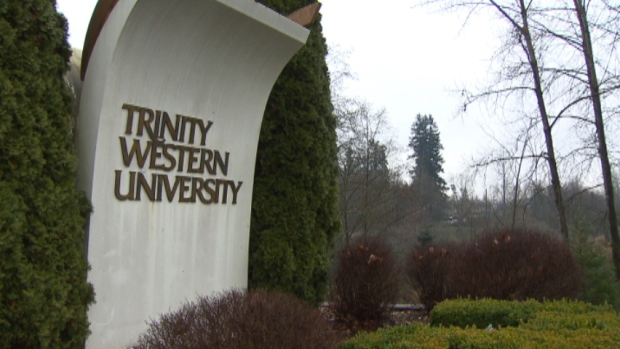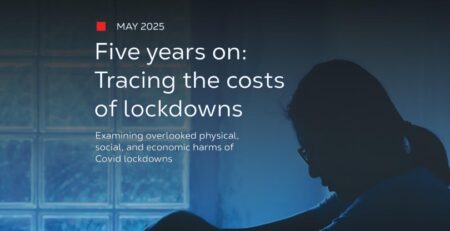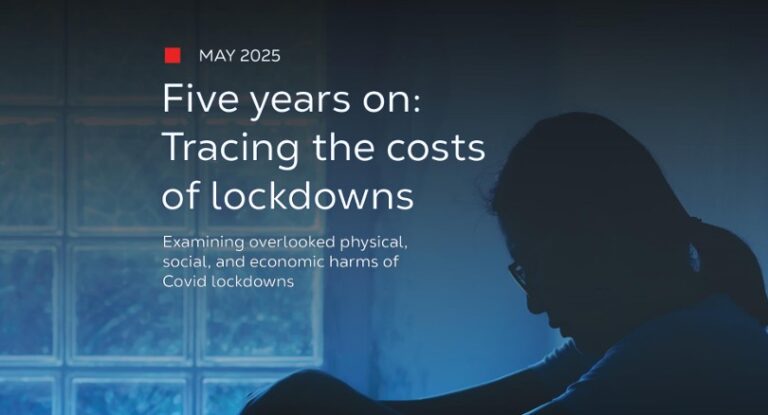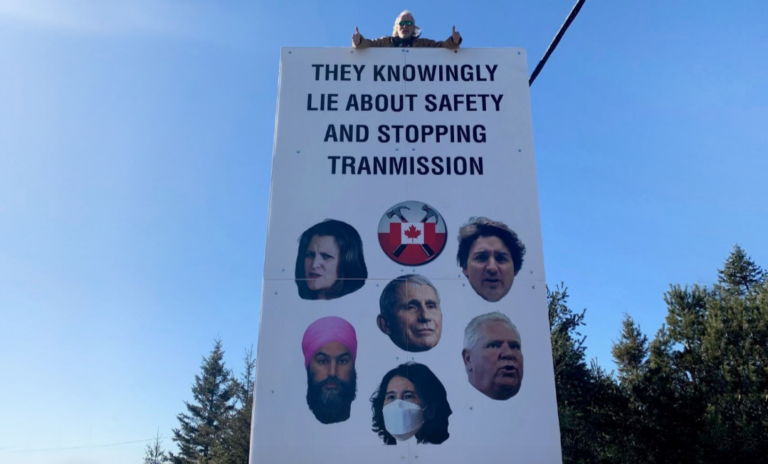CALGARY / HALIFAX: The Justice Centre for Constitutional Freedoms (JCCF) today announced it will seek to intervene in the court application commenced by Trinity Western University (TWU) against the Nova Scotia Barristers’ Society.
TWU is applying for judicial review of the April 2014 decision of the Barristers’ Society, that graduates of TWU law school cannot practice law in Nova Scotia because of TWU’s “Community Covenant”.
The JCCF seeks to intervene in this court action (Trinity Western University v. Nova Scotia Barristers’ Society) to argue for the Charter section 2(d) right to freedom of association. The Justice Centre will argue that the Barristers’ Society violates Charter section 2(d) rights by demanding, as a requirement of entering the legal profession in Nova Scotia, that law students abandon their freedom to associate with others at a Christian university that has a Community Covenant.
“The Court’s decision in respect of TWU’s application will have a significant national impact on the constitutional freedoms of all Canadians, including freedom of association, freedom of conscience and religion, and freedom of expression,” stated Calgary lawyer John Carpay, President of the Justice Centre for Constitutional Freedoms.
Background information about TWU and the Barristers’ Society decision
Students who choose to attend TWU, an evangelical Protestant university in Langley, British Columbia, agree to abide by the community’s standards of behaviour, called the “Community Covenant.” TWU students pledge to “cultivate Christian virtues, such as love, joy, peace, patience, kindness, goodness, faithfulness, gentleness, self-control, compassion, humility, forgiveness, peacemaking, mercy and justice” and to “live exemplary lives characterized by honesty, civility, truthfulness, generosity and integrity.”
One of the Community Covenant’s many provisions is that TWU students and staff will abstain from sexual intimacy outside of the marriage of one man and one woman. The Barristers’ Society believes that the Community Covenant discriminates against gays and lesbians, and has therefore barred TWU law school graduates from practicing law in Nova Scotia.
The Barristers’ Society does not require lawyers who are now practicing law in Nova Scotia to adhere to any particular beliefs about sexuality and marriage. However, for law school graduates seeking to practice law in Nova Scotia, the Barristers’ Society will ban those who, while studying law, chose to adhere to a community covenant and chose to join a Christian university community.
As individuals, evangelical Protestants can maintain and practice their beliefs about sexuality and marriage while attending law school, without facing any barrier to practicing law in Nova Scotia. However, when these same individuals, adhering to the same Christian beliefs and committed to the same Christian lifestyle, associate with each other in a community to study law, the Barristers’ Society prohibits them from practicing law in Nova Scotia. The JCCF will argue that this is a penalty, imposed by a government body on people because they exercise their freedom of association by joining together in a lawful activity.
The Federation of Law Societies of Canada approved TWU’s law program in 2013, based on the program’s academic credentials and professional standards. With the exceptions of the law societies in Ontario and Nova Scotia, law societies in other Canadian provinces recognize TWU’s law program, and will allow TWU graduates to practice law in all other provinces.
Background information about the law, re: freedom of association
In Reference Re Public Service Employee Relations Act (Alta.), 1 S.C.R. 313, [1987], McIntyre J. held that “while freedom of association like most other fundamental rights has no single purpose or value, at its core rests a rather simple proposition: the attainment of individual goals, through the exercise of individual rights, is generally impossible without the aid and cooperation of others”.
A primary characteristic of the democratic state is the freedom to share beliefs in community. In the Alberta Reference case (above), McIntyre J. also stated: “historically the conqueror, seeking to control foreign peoples, invariably strikes first at freedom of association in order to eliminate effective opposition. Meetings are forbidden, curfews are enforced, trade and commerce is suppressed, and rigid controls are imposed to isolate and thus debilitate the individual. Conversely, with the restoration of national sovereignty the democratic state moves at once to remove restrictions on freedom of association”.
In Professional Institute of the Public Service of Canada v. Northwest Territories (Commissioner), [1990] 2 SCR 367, Sopinka J. asserted that freedom of association should not be restricted to the labour setting: “freedom of association is particularly important for the exercise of other fundamental freedoms such as freedom of expression and freedom of conscience and religion”.
In Dunmore v. Ontario (Attorney General), 2001 SCC 94, Bastarache J. stated that “the purpose of section 2(d) commands a single inquiry: has the state precluded activity because of its associational nature, thereby discouraging the collective pursuit of common goals?”
Freedom of association applies to a wide range of associations and organizations of a political, cultural, religious, social or economic nature, with a wide variety of goals, as well as activities by which these goals may be pursued. A religious university like TWU is merely one example of the wide variety and diversity of associations that emerge in a free society through individuals exercising their Charter section 2(d) rights. This case (TWU v. NSBS) provides the Court with an opportunity to protect the section 2(d) rights of individuals to practice their religious beliefs, as well as freedom of expression and equality rights, in concert with other individuals.
Through its April 2014 decision, the Nova Scotia Barrister’s Society has interfered with the ability of a TWU student to practice law in Nova Scotia, as well as interfering with a TWU student’s ability to exercise freedom of conscience, religion, expression collectively, in association with others. This government body has restricted freedom of conscience, religion and expression, as well as the opportunity for gainful employment, due to the associational nature of adherence the Community Covenant, thereby discouraging the collective pursuit of common goals, contrary to section 2(d) of the Charter. The JCCF will argue that students who exercise their freedom of association by choosing TWU to obtain their professional credentials, whether in teaching, law, or any other profession, should not be penalized by government.
The studying of law cannot be achieved by an individual alone, but must necessarily be done in community or association with a law school. The Barristers’ Society’s refusal to accredit the TWU students due to the associational nature of participating in signing the Covenant also discourages the collective pursuit of the common goal of practicing law.
The exclusion of the law graduates from TWU from membership in Nova Scotia’s Barrister’s Society infringes the ability to exercise without penalty a student’s fundamental right to freedom of religion and expression under sections 2(a) and 2(b) of the Charter, also violating the student’s equality right under section 15 of the Charter, as well as freedom of association under section 2(d) of the Charter.








